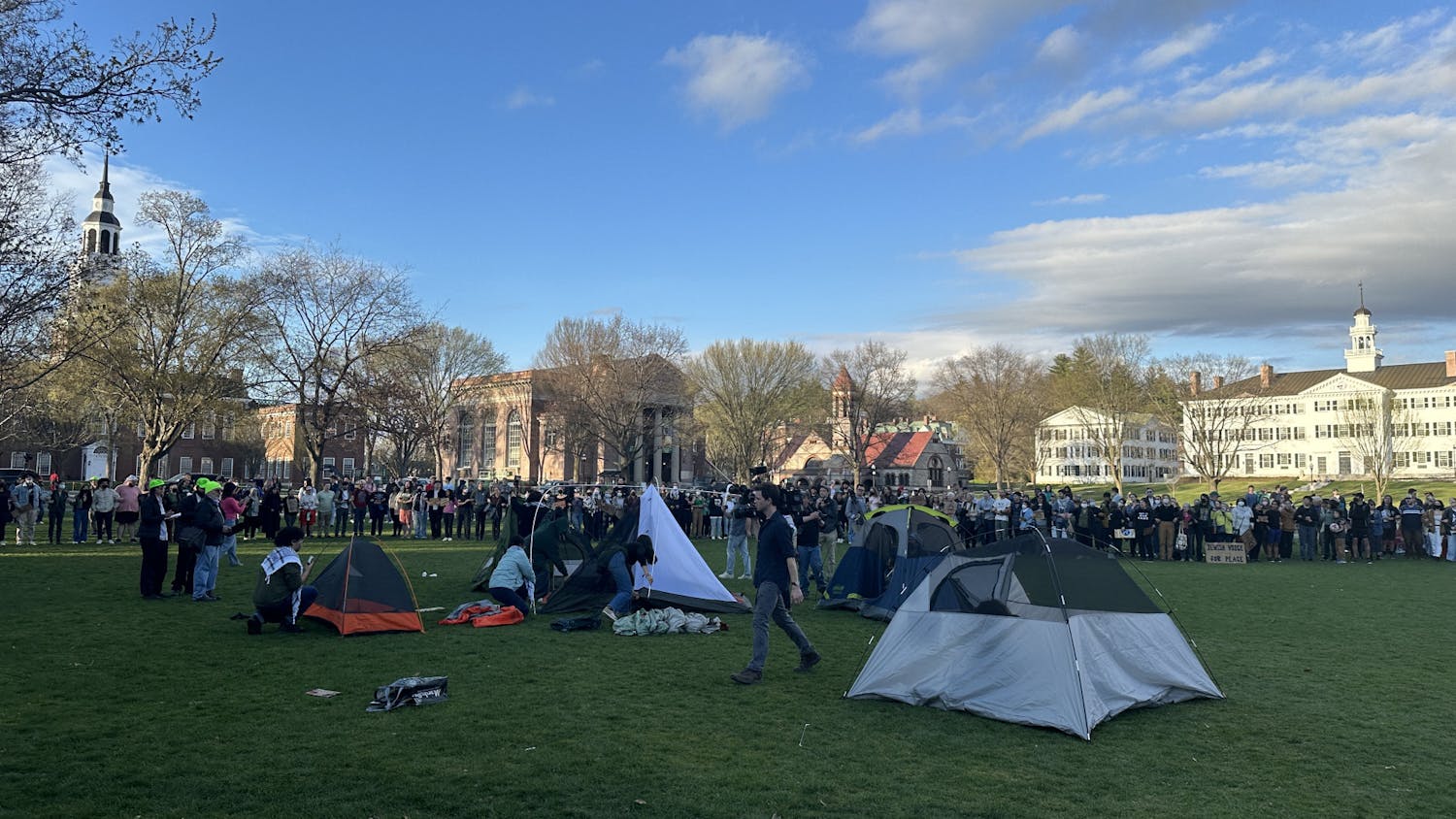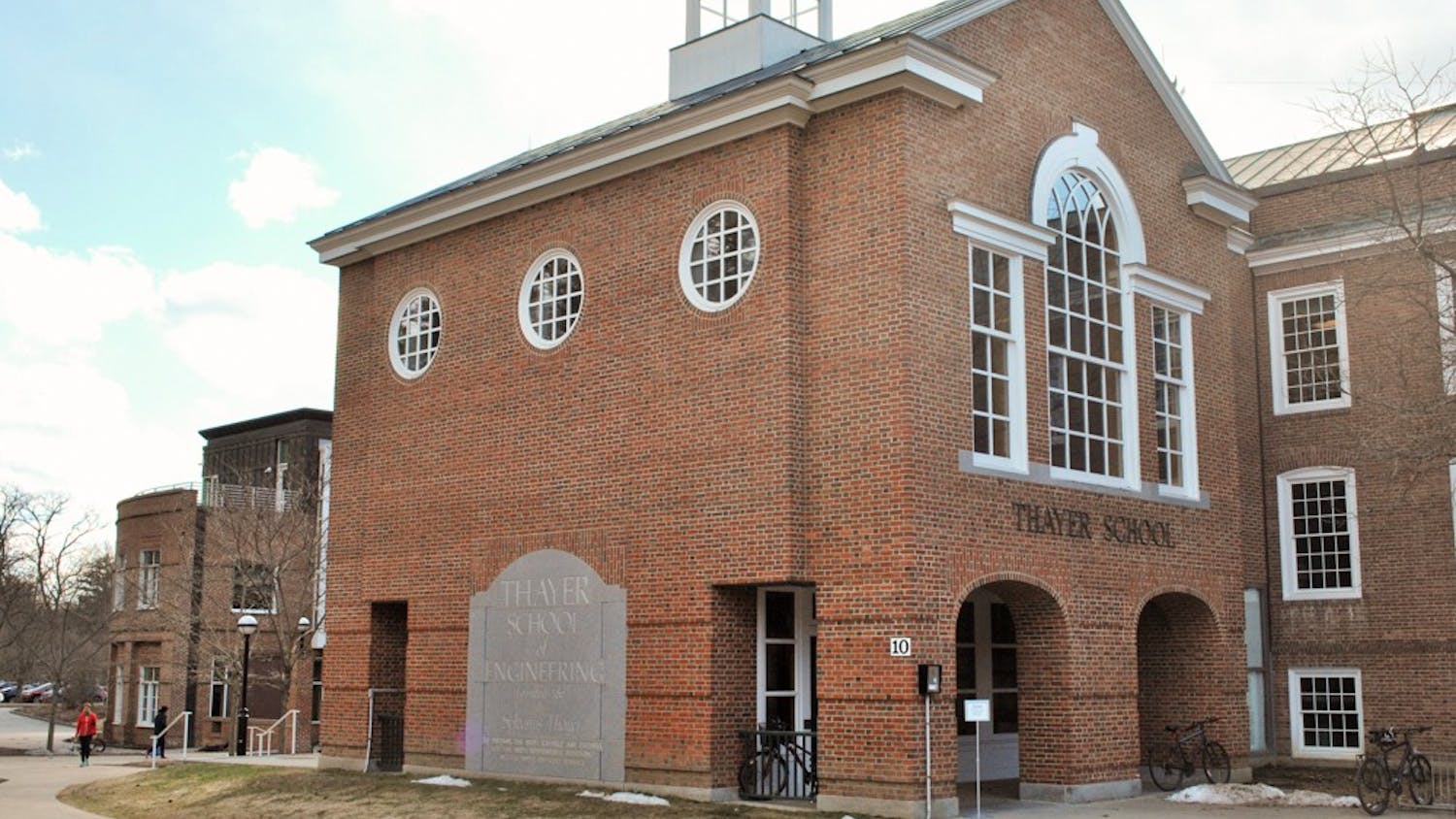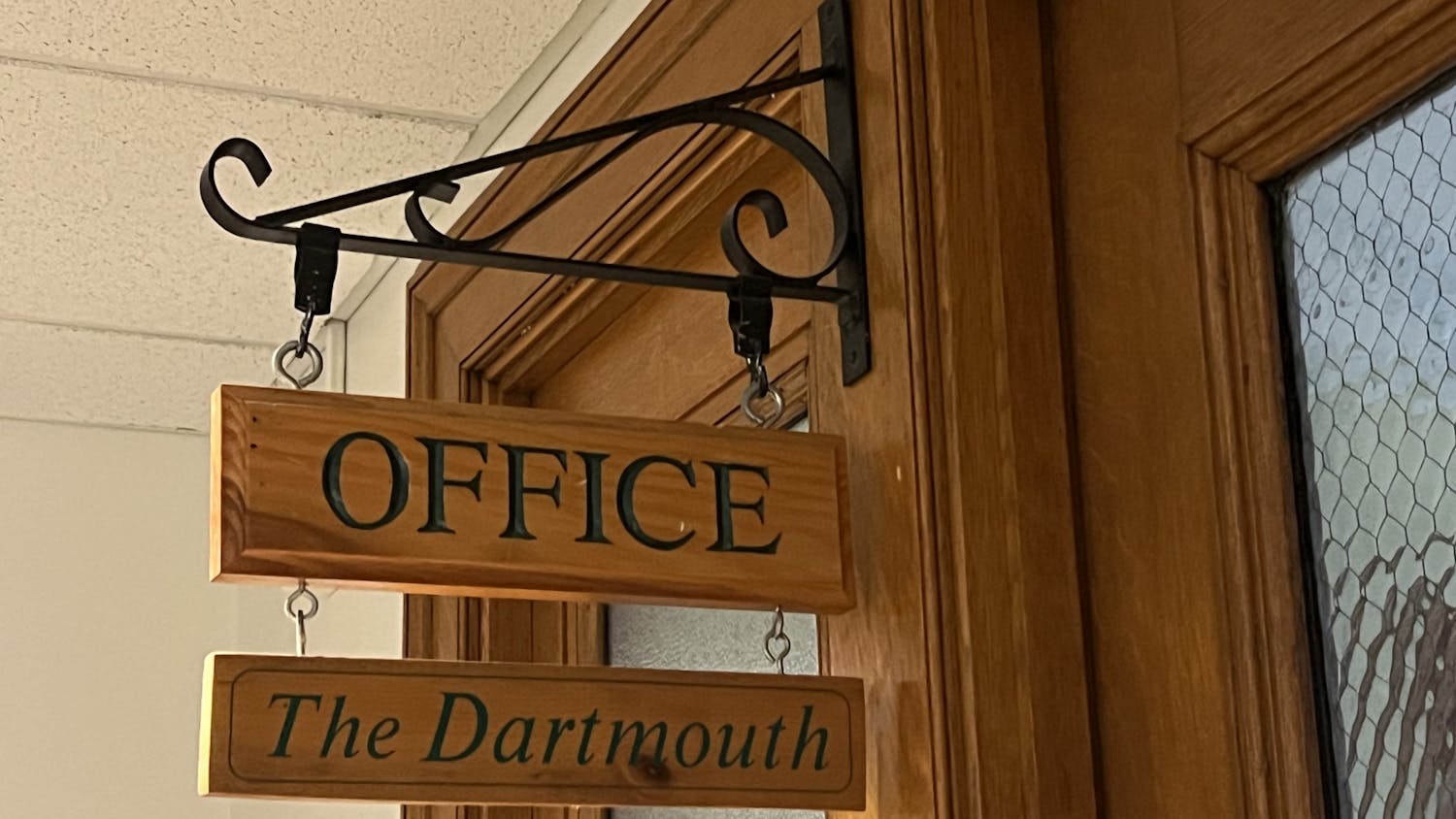Dartmouth students are not known for their social and political activism.
However, the newest wave of Middle East violence that broke out in September -- which has contributed to as many as 328 Palestinians deaths as well as the deaths of 45 Israeli Jews and 13 Israeli Arabs -- has changed the norms somewhat in Hanover. Although students may still be less politically active than on some other college campuses, many people have taken a step towards increased involvement.
For example, Hillel and Al-Nur co-hosted a candelight vigil on the Green in late October.
When they talked to The Dartmouth in October, both Jason Spitalnick '02, last term's president of Hillel, and Yousuf Haque '02, the Al-Nur president, emphasized that their experience working jointly to create a kosher dining facility helped them organize the October vigil.
"I've known [Spitalnick] because of kosher dining," Haque explained. "I have a good relationship with him."
Both acknowledged that they do not agree on the specific means necessary to achieve peace, but they said that complete agreement was not the most pertinent issue.
Spitalnick said he believes that even if students disagree on nine out of 10 issues, "If we can find some commonality on the 10th, we should be taking advantage of that common ground."
The peaceful vigil, which featured pre-selected and approved prayers read by Spitalnick and Haque in English, was certainly not without controversy.
Some students said that their peers should be more proactive in their protest. Other said students should understand issues more thoroughly before marching in favor of or against them.
Around the same time, a group of interdenominational students formed the Dartmouth Alliance for Middle East Awareness to foster discussion about the developing conflict.
Founder Michael Sevi '02, who spent 10 weeks living in Israel during high school and worked at a pro-Israel lobby in Washington D.C. during the summer, explained that he formed DAMEA because up until last term there was no other on-campus group focusing on the Middle East.
DAMEA and the vigil set Dartmouth apart from its peer institutions where exchanges between student groups were largely marked by conflict.
Around the country
There has been contention on college campuses across the country during the past three months.
At New York University, Arab Students United found Israeli flags and blue and white crepe paper streamers glued to the walls of their meeting room in early December.
"Our (executive) board and our members are worried that the situation will escalate," ASU president Nadeen Al-Jijakli told the Washington Square News. "Everyone's really thinking, 'What are they going to do next?'"
Rabbi Andrew Bachman of the Bronfman Center at NYU said it was upsetting to hear about the vandalism, but said most students at the university are engaged civilly with each other.
In late October, a rally at Princeton University meant to promote peace in the Middle East degraded into a bitter argument between students supporting Palestinians and those backing Israelis.
Students held signs that read, "Israel is not the aggressor," "Israel has the right to exist," and "Arafat stop the violence." They sang songs in Hebrew, and the event's organizer read a speech that focused on Israel's right to defend itself from aggression.
Asli Bali, a graduate student at Princeton who had been helping to organize hour-long vigils to honor dead Palestinians told the Daily Princetonian, "I didn't think that being pro-Israel or pro-Palestine were mutually exclusive. I thought that this rally was going to be for peace, not a group of people screaming propaganda. It is just blood curdling to listen to the message that they were sending."
At the University of Michigan, a scuffle broke out between Palestinian students and Jewish students at a "war-crimes tribunal" held in November when a list of crimes allegedly committed by Israelis against Palestinians was read to the assembled crowd.
At San Diego State University, students wielding signs that read "No more killing" and "Zionism equals racism" and screaming "Free, free Palestine" held a protest against the Middle East violence in late October.
"What does the U.S. vote for? (It) votes for Israel. (It) has interests in Israel," Edgar Hopida of the Muslim students union said. "That is kind of absurd to have them mediate, because they are going to lean towards Israel. They think Muslims are a bunch of war-mongers."
Another student there told The Daily Aztec, "It looks like something that is going to escalate into a little war," referring to the on-campus protest.
At the University of California at Berkeley, students talked to the Daily Californian about an "us versus them dichotomy" as Jewish and Palestinean student groups stood on either side of Sproul Plaza demonstrating in favor of their respective beliefs.
At Harvard University, the Harvard Students for Israel and the Harvard Society of Arab Students held simultaneous public events voicing strongly opposing viewpoints on the Middle East situation.
And, at Pennsylvania State University, members of the Penn State Muslim Student Association handed out inflammatory fliers concerning Israeli violence toward Palestinian civilians.
"I feel at the campus, we try to build civility and equality and it's no place to publish this kind of flier," Tuvia Abramson, executive director of the Penn State Hillel Foundation told the Daily Collegian.
Moving forward
With the situation in the Middle East changing every day and many college students across the nation still off campus for winter vacation, it is hard to predict what will ensue in the coming weeks and months.
Israel agreed yesterday to send a top-level envoy to Washington following the productive meetings between Palestinian leader Yasser Arafat and U.S. President Bill Clinton.
U.S. officials voiced caution and said there was now a possible framework for negotiations, but not a viable peace in the near future.



